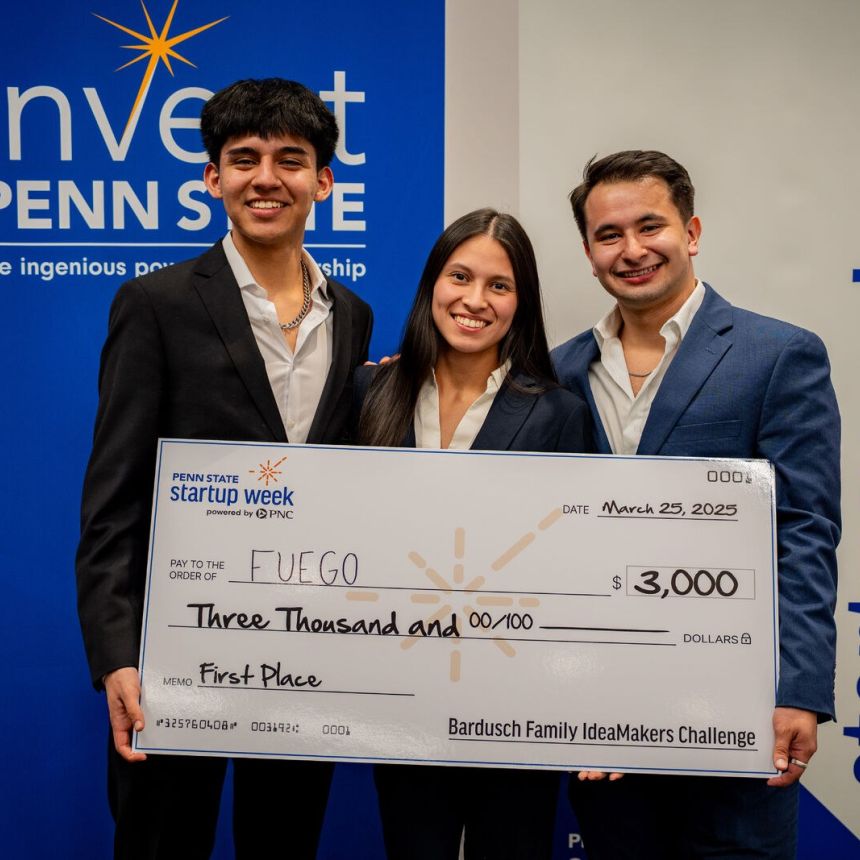
B.S., Enterprise Technology Integration
AI, cloud, and digital tools are changing business. Learn to lead that change.
Enterprise AI, cloud computing, and advanced analytics are transforming how businesses compete and succeed in today's digital landscape. The B.S., Enterprise Technology Integration program positions you at the forefront of this transformation, equipping you with the skills needed to design and implement cutting-edge AI solutions, cloud architectures, and intelligent systems that solve real business challenges. Grounded in business fundamentals and strategic thinking, you'll develop technical expertise alongside critical communication and problem-solving skills, becoming invaluable to employers and graduating ready to lead organizational innovation through emerging technologies.
Is Enterprise Technology Integration Right for Me?
Enterprise Technology Integration combines technology with business, preparing you to use tools like enterprise AI and cloud computing to help companies grow and succeed. This program could be a great fit if you want to:
- use AI and cloud technology to help businesses innovate and compete
- explore new tech like automation and data analytics to solve problems companies face every day
- bring different systems together so businesses can work better and serve customers more effectively

What You'll Study
Build cutting-edge skills in enterprise AI, cloud computing, and business technology to help organizations innovate and compete in today's digital world.
- Enterprise AI and Intelligent Automation
- Cloud Computing
- Enterprise Analytics
- Business and IT Problem Solving
- IT Project Management
- Database Management
- Systems Integration
Application Focus Areas
Pick an application focus area or work with an adviser to create your own to gain context for where you will do your work.
- Application Development
- Business Competency (Earn a Business Fundamentals certificate from the Smeal College of Business)
- Cybersecurity
- People, Policy, and Context
- International and World Cultures
- ROTC, Intelligence, and Cyberwarfare
- Custom Application Focus
Earn a B.S. and M.S. at the Same Time
You can pursue a B.S. in Enterprise Technology Integration and a master's degree at the same time through the Integrated Undergraduate-Graduate (IUG) degree program. IUGs make it possible to complete both an undergraduate and graduate degree in five years!

The Power of Internships
Every Enterprise Technology Integration student must complete at least one internship before graduating—most complete more than one, and 84% receive a job offer from an internship provider. With hundreds of organizations recruiting and a dedicated Career Solutions team to support you, you'll have the tools and opportunities to launch your career.
View Past Internships
“I love the business aspects of the major and the focus on group projects. It’s preparing me with teamwork and analytical thinking skills that will be useful in my career, while also helping me learn from my peers.”
Emma Crissman , Technology Risk Assurance, EY
Discover Your Career
From enterprise AI to cloud architecture to digital transformation, the technology careers of today and tomorrow are evolving rapidly. As you work toward your degree, you'll explore emerging career paths through courses, student organizations, and hands-on experiences. With guidance from our dedicated Career Solutions team—from your first job to leadership roles—you'll develop expertise in AI implementation, cloud systems, business strategy, and communication to lead innovation across industries like technology, finance, healthcare, consulting, and beyond.
Information Architect
Organizes, structures, and designs information within digital products to ensure usability, accessibility, and effectiveness, creating logical content structures for seamless user navigation and interaction.
Usability Engineer
Improves user-friendliness of software, hardware, and websites by applying computer science and psychology principles to identify and solve usability issues.
Quality Engineering and Assurance Analyst
Supports planning, design, and execution of system testing, collaborating with IT and business units to validate test cases, develop plans, and ensure user expectations are met.
Application Security Specialist
Conducts security assessments, improves application security practices, and educates development teams to ensure delivery of secure, reliable software.
Technology Advisor
Provides expert advice and detailed information in a specialized field, guiding organizations to ensure safe, effective practices and informed decision-making in complex or high-risk scenarios.
Software Engineer
Applies programming languages and engineering principles to design, develop, test, and maintain software applications and systems. Collaborates with cross-functional teams to analyze user needs, create efficient algorithms, and implement scalable solutions.
Product Designer
Oversees the design process from start to finish, improving products, brainstorming solutions, gathering stakeholder input, and liaising between designers, engineers, and researchers to create mock-ups.
User Interface/User Experience Designer
Creates the look and feel of features across web and mobile platforms by understanding user needs, translating research into visual designs, and delivering detailed specs for development.
IT Consultant
Advises clients on building and operating IT networks, solving problems, improving performance, and offering solutions for business models, websites, and other IT aspects. Conducts analysis, proposals, and training.

Bardusch Family IdeaMakers Challenge
Through mentored research, student organizations, and experiential learning opportunities offered through the Bardusch Family IdeaMakers Challenge, Enterprise Technology Integration students can extend learning far beyond the classroom. The IdeaMakers Challenge is an early-stage business idea competition that invites student teams to identify a problem and pitch a solution that involves digital innovation. Teams receive mentoring from faculty and industry leaders to develop their idea, and then pitch it to a panel of expert judges to compete for prizes.
IdeaMakers Challenge
